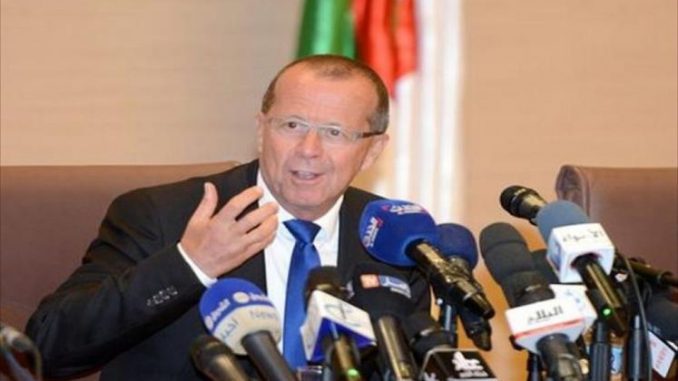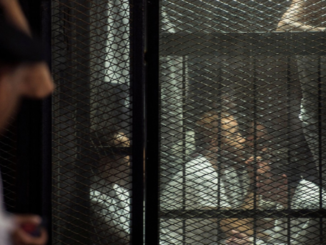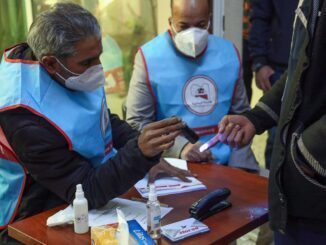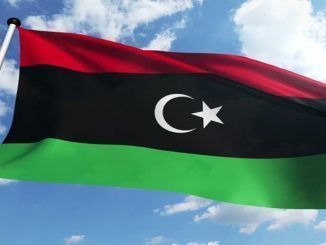
Kobler said that Hafter’s forces have made progress in the interest of all Libyans
UN Envoy to Libya Martin Kobler has said on his Twitter account that the army, led by Khalifa Hafter, has made progress for the benefit of all Libyans, while the British ambassador to Libya, Peter Millett, and the US special envoy, Jonathan Weiner, have expressed their appreciation of the efforts of Hafter’s forces in fighting the Islamic State organization
The comments of Martin Kobler, the Special Representative of the Secretary-GeneraL (SRSG) and Head of the United Nations Support Mission in Libya(UNSMIL) on the progress of the forces of retired Major General Khalifa Haftar in the axes of fighting in Benghazi, have aroused questions about the impartiality of the UN mission stance toward Libyan parties that have been divided militarily and politically for nearly three years.
The UN envoy said in his tweet, “The Libyan army, led by Hafter, caused a painful loss of lives in its war on terror in Benghazi, and that it is making progress for the benefit of all Libyans.”
The British ambassador to Libya, Peter Millett, and the US special envoy, Jonathan Weiner, have both expressed, in tweets, their appreciation of the efforts exerted by Hafter’s forces to expel the Islamic State organization and the forces of “Ansar al-Sharia” from Al-Qawarsheh area, to the west of Benghazi.
Skhirat agreement
Saltanah Al-Mesmari, a member of the Libyan House of Representatives (HoR) commented on the position of the UNSMIL chief that Kobler sided the active forces on the ground, especially after Hafter’s forces have almost controlled the entire city of Benghazi, except for some areas.
Kobler’s remarks open the way for Skhirat agreement amendment
Saltanah Al-Mesmari also downplayed, in a statement to al-Jazeera, the significance of changing the position of the UN envoy, stressing that the military forces in the east of the country enjoy the legitimacy of the House of Representatives, and does not need the recognition or the praise of the UN mission, as she put it.
Al-Mesmari also said that the change of Kobler’s attitude toward Hafter’s army must be followed by further steps including modifying Skhirat political agreement, especially with regard to returning the army to the parliament, and returning to the fourth draft of the political agreement which states that the presidency council of the Government of the National Accord (GNA) should consist of a prime minister and two deputies.
For his part, Walid Irtemh, a Libyan political analyst, believes that the UN envoy’s remarks on the Operation Dignity forces (of Hafter) does not only open the door to modifying Skhirat political agreement, but it is an attempt to incorporate retired Major General Hafter as part of the political agreement.
New strategies
For his part, Ashraf Al-Shah, a member of the Libyan political dialogue team, said that there are other factors that contributed to the shift in Kobler’s stance, such as the new reality that Hafter’s troops imposed after controlling the oil fields to the east of the country.
Al-Shah: Western powers are divided over the crisis in Libya
Al-Shah attributed the change of the position of the United Nations Support Mission in Libya to the absence of a unified vision of Western countries on solving the Libyan crisis, and division over the continued support Hafter as a guarantor of stability, or supporting the Government of National Accord as a national unity government.
The member of the Libyan political dialogue team added that the poor performance of the figures and the presidency of the Government of National Accord may push some of the countries that supported the political agreement to adopt new strategies and other options that are open to all possibilities, but Kobler’s comment is an important indicator.
Kobler says Hafter must have a role in the unified Libyan army:
“I have always said that General Hafter must have a role … and I would like to sit together with him and discuss it.” Kobler told a press conference in September after he had briefed the UN Security Council on the latest developments in Libya, according to Libya Herald.
Kobler had earlier told the 15-member Security Council that the fragile peace in Libya’s Oil Crescent had suffered a “fierce blow” when army units commanded by Hafter had attacked the four oil terminals, which, he said, had been under control of forces loyal to the PC .
He explained “I was concerned that this might happen. This development will further hinder oil exports, deprive Libya of its only source of income, and increase the division of the country”. He added “ This has to stop”.
Libyan PC says Hafter must be subject to political authority
When Libyan Presidency Council’s deputy leader Ahmed Maetig was asked by the Italian newspaper Repubblica about Khalif Hafter who had lost “the race” to Sirte but was taking control of the oil wells in Cyrenaica and had his troops close to the Zuetina oil terminal, Maetig replied that the UN-recognised PC had all the legal power to control the military. “Hafter was welcome to fight terrorists but as an officer he was subject to political authority. We do not want a new phase of illegality,” said Maetig, “It would be very dangerous”.



